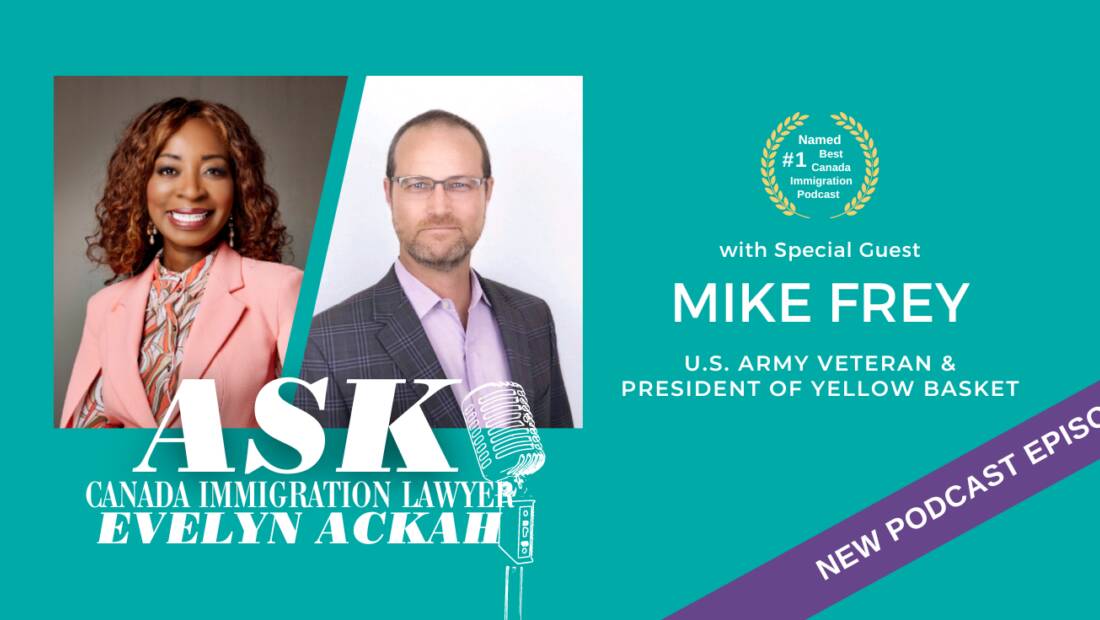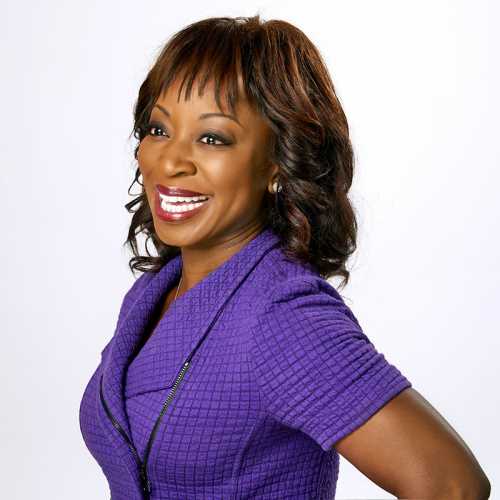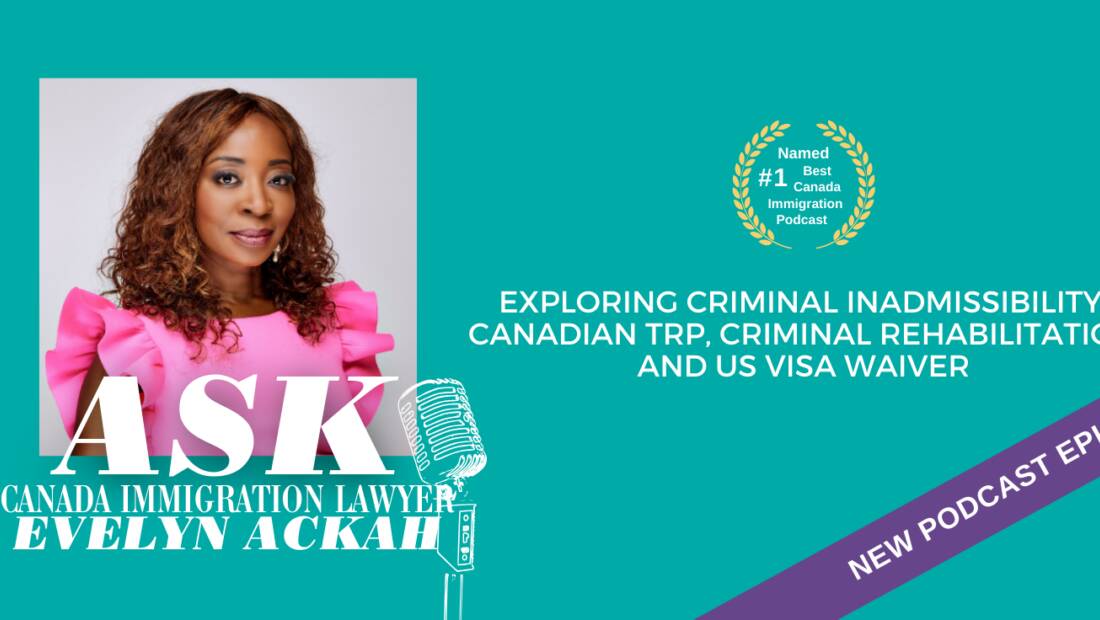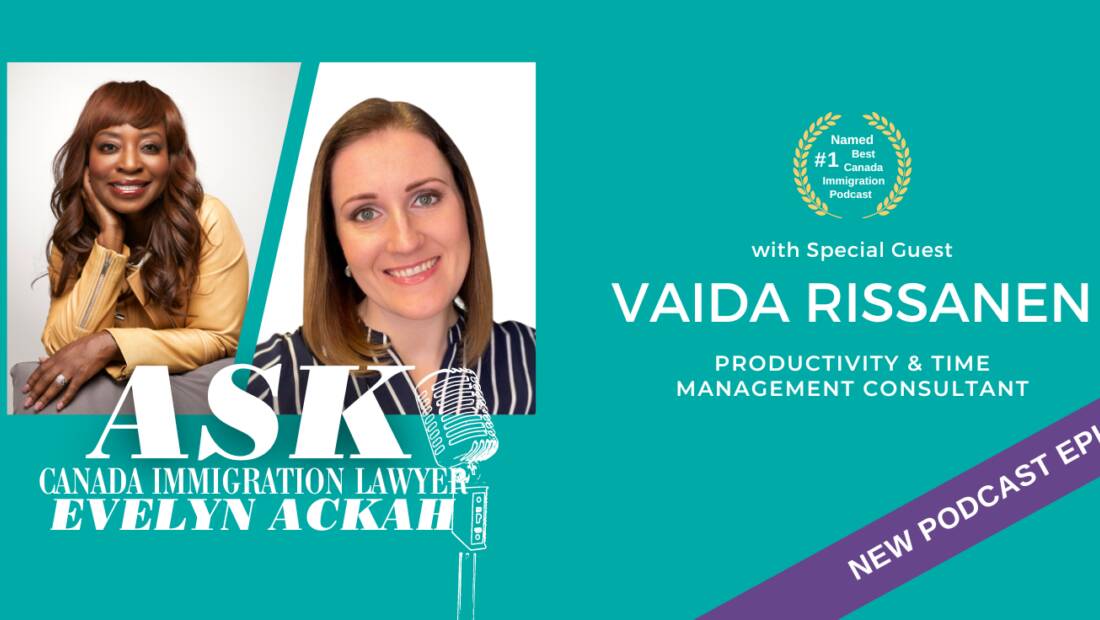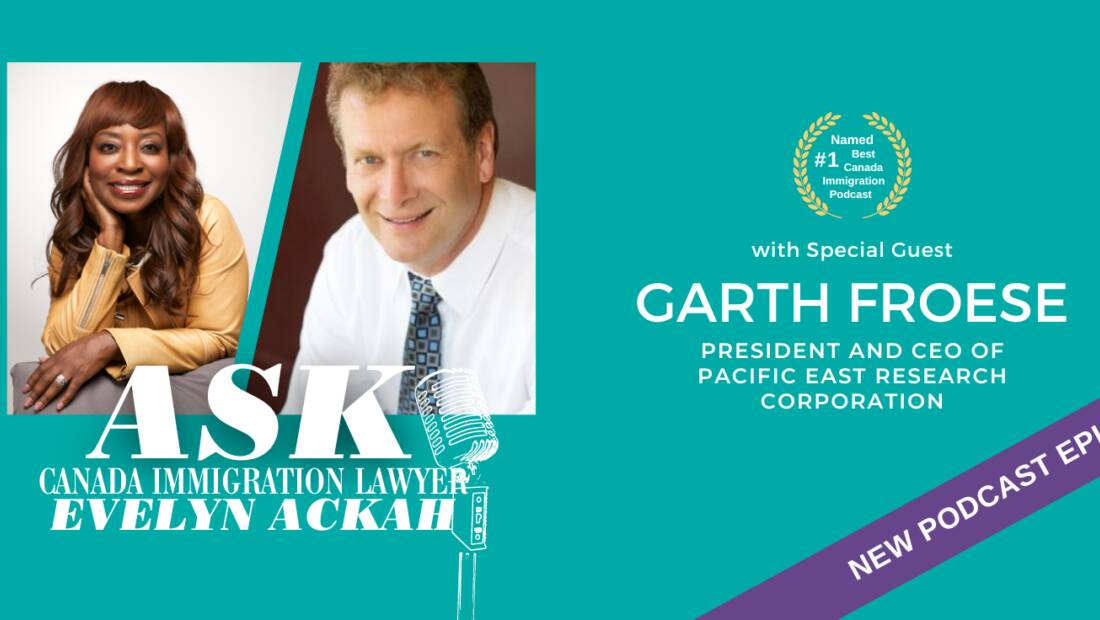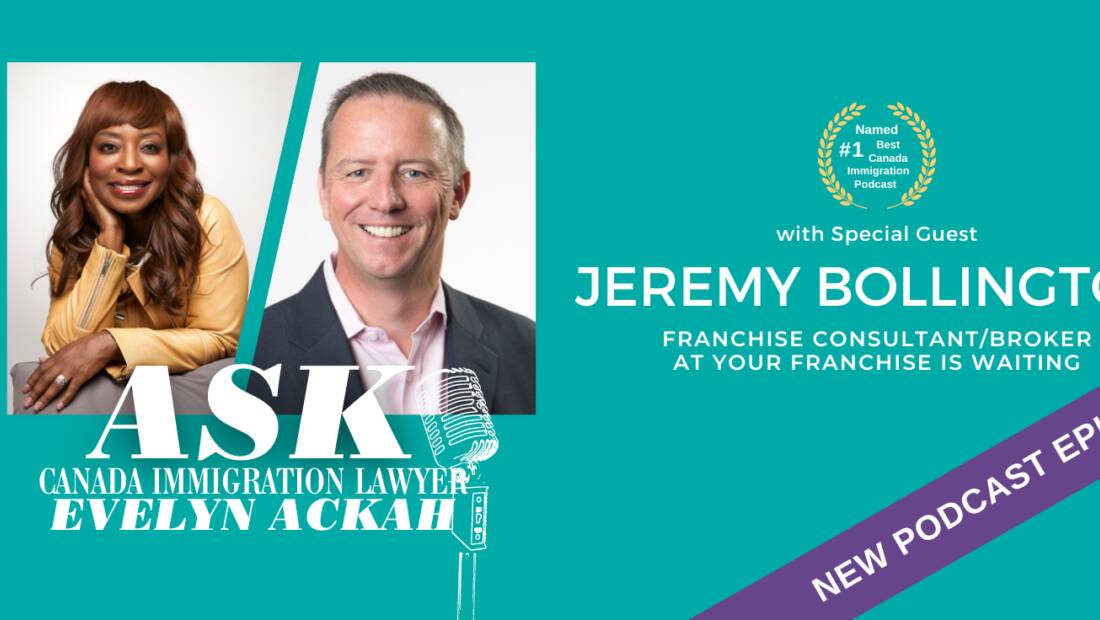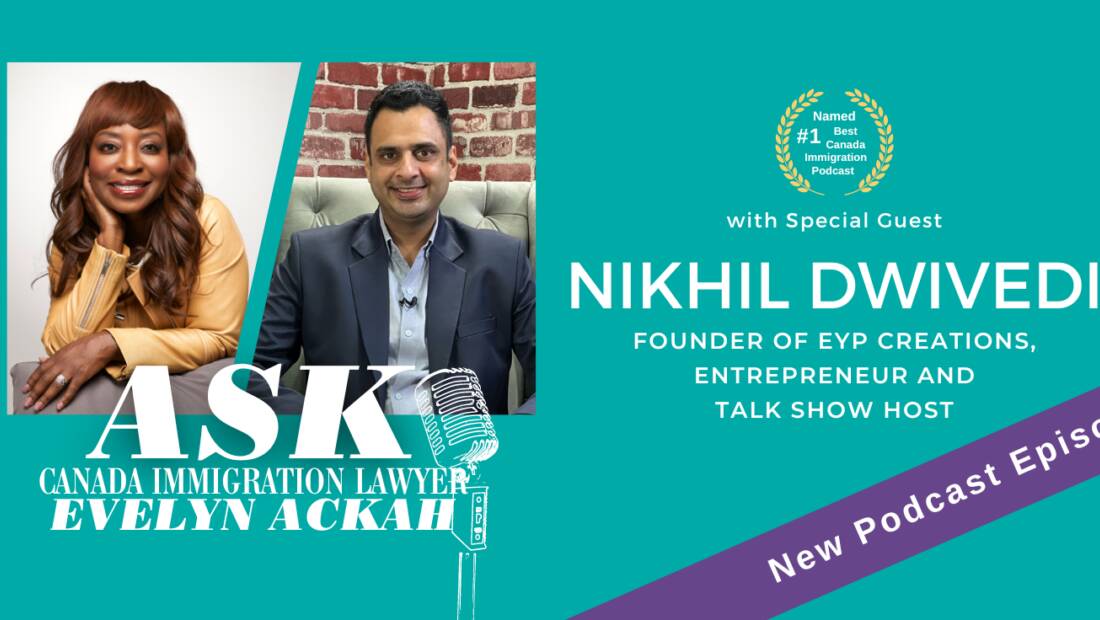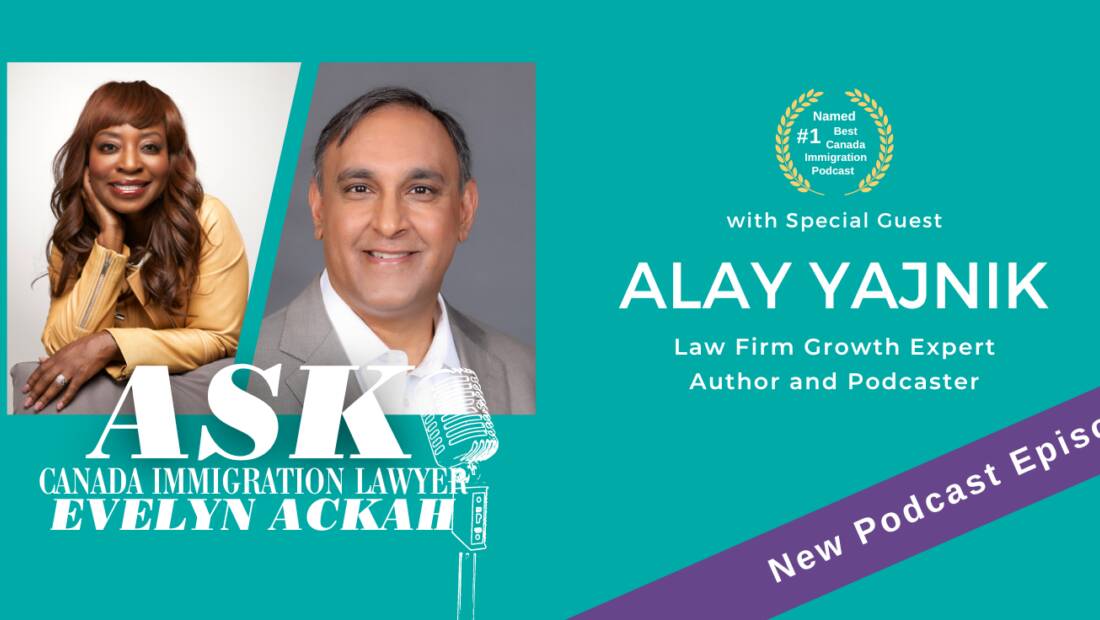Or listen on your favourite podcast app
On the Ask Canada Immigration Lawyer Evelyn Ackah podcast, host Evelyn Ackah speaks with Mike Frey, the President and CEO of Yellow Basket, LLC, based in Houston, TX. Mike shares his background in technology and the lessons of starting his own businesses. He discusses how his business, Yellow Basket, helps businesses with technology and automation. He also shares his experience as an Ackah Law client and how the transition from the US to Calgary has been. Mike emphasizes the importance of using technology to make your team more efficient and having the right people on your team. The podcast concludes with advice from Mike on technology tips for business owners.
Mike Frey can be reached through:
- LinkedIn - Mike Frey | LinkedIn
- Instagram - Yellow Basket (@yellowbasket.io)
- Website - Yellow Basket
BOOK YOUR FREE CASE EVALUATION
Here are the key points from Evelyn Ackah's podcast interview with Mike Frey:
- Background:
- Evelyn Ackah introduces Mike Frey, the President and CEO of Yellow Basket, LLC, and a client of Ackah Law.
- Mike has 30 years of experience in business and technology across all major industries and has worked in the US,Europe, Central America, and Canada. Additionally, Mike is a US Army veteran.
- Journey in Business:
- Mike moved from Microsoft to start his own business, where he has really found lessons in all of his management.
- He founded his company, Yellow Basket, in X, to help business owners, X. He also shared the origin story of the name "Yellow Basket"
- Key Aspects of Yellow Baskets' Work & How It Helps Others:
- Mike shared that Yellow Basket focuses on automating business processes and systems integration. He shared that it really just means helping businesses automate different software talking to each other so data is not being shuffled around inefficiently.
- His business allows team members to move from clerical-type jobs of shuffling papers and data to being the best they can be with work that can move the business forward.
- He shares that Yellow Basket predominately works remote, but they can work on-site as needed.
- Leadership Lessons Learned:
- Mike shares about recruiting and how it is important it is to find the right people and to trust what they do when you delegate, as delegation is key.
- When moving into new areas, he really wants to get integrated into networking opportunities.
- Technologies that Yellow Basket Uses
- Mike shares that Yellow Basket is fairly agnostic when it comes to technologies; they want to help the business succeed with the technologies they use in-house.
- He shares that there is one software that Yellow Basket uses frequently: Odoo.com. This technology is an Enterprise Resource Planning (ERP) and Customer Relations Manager (CRM) all in one. It has modules for most businesses in one space instead of cobbling everything altogether.
- Client Experience with Ackah Law & Transition to Calgary:
- He was referred to Ackah Law by a friend and shared that working with Ackah Law was all encompassing and very smooth. He shared that he was pleased with Ackah Law's use of technology for the clients.
- He shared that the transition into Calgary has felt so good, but the biggest change is the three recycling/scrap/trash bin situation is hard core.
- Advice to Other Business Owners About Technology:
- His biggest piece of advise is making sure that you are investing in technologies that are fit for purpose and for integrating and automating other programs into it. If you can buy one system that does three things and it does them well, do that instead of buying three different things that you have to cobble together
- He also shares that bringing in new technology is not the hard part, it is changing your people around the processes that is hard. He says that you really have to spend some time letting people understand why you're making changes and making sure that they're trained appropriately and not just thrown into the deep end.
About Calgary Immigration Lawyer Evelyn Ackah
Evelyn Ackah is the Founder and Managing Lawyer at Ackah Business Immigration Law. With offices in Calgary, Toronto and Vancouver, we work with individuals and business owners from all over the world who want to cross borders seamlessly. For more information on immigration to Canada or the United States, Ask Evelyn Ackah at Ackah Business Immigration Law today at (587) 854‑3821 or email Evelyn directly at contact@ackahlaw.com.
The Ask Canada Immigration Lawyer Evelyn Ackah podcast, hosted by Calgary Immigration Lawyer Evelyn Ackah, was named the #1 Best Canada Immigration Podcast in 2023 by Feedspot.
BOOK YOUR FREE CASE EVALUATION
Evelyn Ackah (00:00):
Hi everyone, it's Evelyn Ackah. Thank you so much for joining us on the Ask Canada Immigration podcast. I have the pleasure today of having a client and hopefully a new friend on his name is Mike Frey. Hi Mike. Thanks for joining us.
Mike Frey (00:15):
Thank you for having me.
Evelyn Ackah (00:17):
Mike just recently moved to Calgary and Mike Frey. He's the president of Yellow Basket, which is a technology consulting firm specializing in systems integration process automation. So I'm going to say that again, that specializes in system integration, process automation, and rescuing runaway technology projects that we all have. Yellow Basket is headquartered in Houston, Texas and has regional offices in New Jersey and a new office in Calgary. Thanks to working with us. Mike has 30 years experience in business and technology across all major industries, and he has worked in the us, Europe, Central America, and Canada. Mike is a US Army veteran and he has an MBA from the University of St. Thomas. Welcome again, Mike. Thanks for doing this. I love having clients and business people on our podcast. How are things?
Mike Frey (01:09):
Things are great, rather than just starting to get a little chilly here and
Evelyn Ackah (01:13):
Yeah, it is chilly compared to Texas. Oh my God. Yeah, I would say in Calgary it's very crisp in the mornings and it gets a little warmer and then it gets crisp again. So you're going to have to start getting some warm clothes. So tell me, what was the motivation for you to start this business Yellow Basket 30 years ago?
Mike Frey (01:39):
Well, it's actually only been about 15 years.
Speaker 3 (01:41):
Okay. 15.
Mike Frey (01:42):
Yeah. But it's just a continuation of my career in technology. I grew up around computers just as they were becoming a thing, not to date myself. And then in the Army I worked with computers, and when I got out of the army, I took a job with a little company from Seattle called Microsoft.
Evelyn Ackah (02:08):
I think I've heard of them before.
Mike Frey (02:10):
Yes. And then shortly after that, got into technology consulting, which I've more or less been in my entire career. Yellow Basket actually came out of a, it was originally a software product that still my current partners and I developed and brought to market. But we were getting asked more and more to develop custom solutions and deliver custom projects. And so we said, well, let's give the customers what they want. And so we switched gears and changed into a technology services firm.
Evelyn Ackah (02:48):
That is so cool. So how many people make up Yellow Basket now? How many employees?
Mike Frey (02:54):
So we're now about 20 between in the US we have people all over the us. We also have an offshore team in Panama City, Panama, and now we're building up the office here in Calgary, and hopefully we'll be having some new team members here soon.
Evelyn Ackah (03:12):
That's exciting, really exciting. So before we get into more of the challenges of entrepreneurship, what was the name about, what is Yellow Basket about? Is there something behind it? I never found that out when we were doing your
Mike Frey (03:25):
Origin. The origin story? Yes. Well, one of the software products that we were thinking about bringing to market had a name called Tskit, and I won't go into what that was about, but the name was called Tke, and you might not believe this, but in Texas there was actually already a company called Tskit, Tskit, LLC. So the name was taken, and we said, well, what are we going to name this? And you were just going, Tskit, tiskit, tki. What's the rest of that? Tskit at task? A green and yellow basket. Yellow basket. You thought that would just be a funny name.
Evelyn Ackah (03:56):
Oh, I got it. I got it now. Thank you for sharing that. I love that. So when you started your business 15 years ago, you have this 30 year career, what are some of the key challenges you faced when you were incorporating or thinking, let's talk about your first business. What were the challenges you faced leaving, let's say a Microsoft or the other companies you worked at and starting your own?
Mike Frey (04:22):
Well, the first consulting firm that I founded, our co-founded, the real thing was just getting our clients. We had a good team of people with the right skills and it was really going to market at that time. I think I was definitely very inexperienced at being, let's call a salesperson or a BD person. So first thing was really just finding clients and getting over that inertia of the first paying gig. But luckily in that case, we got some fairly big clients very quickly that was in data warehousing, which was new at the time. And from then on it got much easier. But it was navigating, bringing on new employees, all the lessons that are learned if you've never had employees before. I always say every good employee manual, every page in it is, there's a story behind it.
Evelyn Ackah (05:30):
Absolutely.
Mike Frey (05:32):
But yeah, being in business for yourself, you have to learn a lot of lessons. Sometimes you get stuff from good mentors, but sometimes you just learn 'em with cuts and scrapes and bruises.
Evelyn Ackah (05:46):
Absolutely. I hear you. I've been there in my 14 years on my own. It's never boring, that's for sure. So can you tell me, give me some samples of clients you've worked with, obviously not names, but how your company does this integration? Does this automation helps them problem solve with their technology? And if there's specific programs that you use specifically, share that as well, please.
Mike Frey (06:12):
Yeah, sure. So I think the stuff that we do kind of day to day is a lot around automating business processes or systems integration. And that really just means that you find companies that they have one software that runs their inventory and they have one software that runs their accounting and they don't natively talk to each other, so they end up shuffling a lot of data around with Excel and other tools. And so what we can do is come in and make those systems talk to each other and eliminate the excess labor and time that's spent doing really tedious work instead of doing real
Evelyn Ackah (06:59):
Work.
Mike Frey (07:00):
We do a lot of getting people off of Excel and then other processes in the business, especially if they're around data entry or moving data around, we can automate those processes. That's kind of in the sort of everyday stuff. But we also do some stuff that's more exciting and cutting edge technology either with, we've done projects where we've worked with computer vision for drones to figure out where other drones are in the sky. We've done some interesting project with blood chemistry in the medical space. And of course now the topic on everybody's lips is AI and large language models, and we've been doing some exploratory stuff into that to see where that's a good fit for market as opposed to just being a shiny new object.
Evelyn Ackah (07:56):
Yeah, I hear you. AI is on everybody's mind right now and nobody really understands it. I think. I certainly don't, I'm looking at that as well in terms of law, how we can use it safely with privacy rules and all the rest of it. So tell me, as you talk about some of your scrapes and bruises as the CEO of a business like Yellow Basket, I'm sure you've got some leadership lessons that you've learned along the way that you could share with somebody like me or even people with less years of experience as an entrepreneur. What would you say are the first two or three things that come to mind around the need for leadership, and what are the lessons that you've learned?
Mike Frey (08:39):
Well, I think an easy one is that you've got to have good people. You've got to recruit good people because it starts with that you can't do everything. And then along those lines, as a manager and a leader, other thing is resist the temptation to do everything yourself, which I'm completely guilty of doing. And a mentor of mine once said, delegate outsource me. And that should be the order of everything when you're a leader and a manager.
(09:12):
So
(09:13):
Got to have good people and you got to be able to trust what they do.
Evelyn Ackah (09:16):
That's great. That's really helpful. So when we talk about the work that you do with the automation, I'd like to understand how do you think your business can help other businesses who work with you cut costs and increase revenue through technology, through the projects that they would do with you?
Mike Frey (09:36):
Just as a general rule, any organization of any size has a lot of waste around what I call just tedious processes, which are people doing swivel chair accounting, taking data out of one system, putting it into another system, or spending an excess amount of time interfacing with their vendors, with their customers because they're using manual process. To do that, you're using a lot of paper. And the technology solution to that is integration and automation be repetitive, which is figure out ways where we don't have to have someone shuffle paper between places and we can have the computers do that because then you can get those people working on much higher value type work than essentially clerical type work.
Evelyn Ackah (10:36):
I agree with that. Are there particular programs that I think when you were in the office a while back, you were talking about something that you were launching and partnering with. I'm not sure. Can you talk about it or?
Mike Frey (10:47):
Sure, yeah. Okay. Yeah. For the most part, we like to consider ourselves fairly agnostic to technology, meaning that we can come into anywhere quickly ramp up on whatever particular technology you have in house. And so we don't come like some firms where they're a Microsoft consulting firm or they're an Oracle consulting firm or whatever. We don't really come with a lot of that sort of baggage. But we do have one particular affiliation, which is we are a partner with a company called Ooo, which can be found@ooo.com, ODO o.com. It's funny sending name. They've actually been around for about 20 years though. They used to be called Open ERP, and they are an ERP, which is Enterprise Resource Planning and a CRM customer relationship management. And it's basically a package that's targeted at small and mid-market where it has essentially all the pieces you need to run your business. So it has accounting, it has inventory management, it has manufacturing modules, it has every social marketing modules. It is actually got 80 different modules in it. And we like the product because again, for that small and mid-market, cobbling together many different pieces of software to do the same thing, becomes very, very expensive.
(12:26):
And they do it a very, very well. And they do it at a price that's really reasonable that even small businesses can afford.
Evelyn Ackah (12:36):
That is so great. Oh dear. I remember when you talked to me about, I was like, oh my goodness, this sounds great. Because at ACO law, we've got so much different technology we use and we have to use technology like Zap here and other kinds of connectivity to get them to work together. So do you use that kind of bridging technology like a Zapier or is there other more sophisticated programs that you use to help your clients integrate and automate?
Mike Frey (13:04):
So we have used Zapier before all of those. They really just depend on what's available. Oftentimes, we are brought in just because something like a Zapier or some other middleware doesn't work
(13:19):
With
(13:19):
Whatever particular software packages they have. And kind of if you look at buy versus build, yeah, first we're going to go look and see what's on the market, what can we get off the shelf to do this, and if there's nothing available or if say the cost is too prohibitive, then we will go to building a custom solution to connect systems together.
Evelyn Ackah (13:46):
That's so great. I love that. I mean, I think as a small business owner dealing with technology, there's always something new, but then you're not also maximizing what you have. And that's what I find a lot of times is you don't need 10 things. You can have three or four that you're fully utilizing, and that's a huge cost savings from all of the subscriptions. So tell me about, you were started in Houston, when did you start the New Jersey location or office?
Mike Frey (14:19):
They were all basically started at the same time because one of my partners, Kyle lives in New Jersey and he has, I think three of our consultants that live in that area. And so we've always kind of from the beginning had kind of the north office in the south office. My other partner lives in Houston, we've got people in Utah, we've got people in Virginia. I like to say we were remote before remote was cool.
Evelyn Ackah (14:54):
Yeah, it sounds like you were, I mean, we're remote too. We have people in the office, but then we have most of the people offsite and it works for most people. So now that you're entering the Canadian marketplace, I'd love to learn about what was the motivation to come to Canada. I know obviously from a personal immigration perspective, but what was the desire to look at the Canadian market when you are in one of the largest markets in the world?
Mike Frey (15:20):
Well, it was a good fit for us to expand out of the US just because, and I'm talking specifically about Calgary,
(15:30):
Calgary and Alberta, which is anyone who's been to both. We could say that Alberta is the Texas of Canada, or Texas is the Alberta of the us whichever way you want to look at. But very similar markets, obviously a lot of oil and gas, and then all the ancillary services around it. And of course, coming out of Houston, a big industry for us is oil and gas. So that was kind of a natural fit. And between that, and then personally, I had some family up here. So that helped out. That would make transition easier, and it was basically a reason to bring what we do to another market that was very similar to what we were used to.
Evelyn Ackah (16:23):
That's great. And so I know that you took a lot of time. You looked at the marketplace, you looked at what you could offer, and you looked at who's here and the opportunities to grow. So it's been very early days, I know. What have you been up to since you've been in Calgary?
Mike Frey (16:39):
Out meeting people have made some great contacts and actually have deals in the pipeline right now. Locally ambulance, no pun intended, with that's awesome Gas industry. And I think that the relationship between the US company and the Canada companies going to be given, because there's also sets we can pick up here because now we're more or less a, let's call it a multinational in a sense that we have people are our business and our people have very specialized skills in certain areas, and then general skills in all areas. And it's also just another resource pool for us to add to the team. And then we can offer the skill sets of those people cross border on different projects as it suits what the client needs are.
Evelyn Ackah (17:39):
So when you have a client deal and you get a new contract, do you work on site, obviously after the initial meet and greets and figuring out what they need and the scope of everything? Are you on site or is it all done remote?
Mike Frey (17:53):
It's predominantly done remote, but we have some exceptions. We do have some clients that want us to be on site, and if that's the case, we can accommodate that. We have clients that are just, we're partially onsite, like you say, we just go for either initial meetings or statuses. I just got back from Rochester, New York meeting with a client last week doing some planning for the next year. But most of the time we work remote. And just you and I think probably both old enough to remember a time when we didn't have cheap video conferencing and that was a luxury, but now with Zoom and Teams and all these other tools, it makes that a lot easier. It makes it practical, really.
Evelyn Ackah (18:47):
Definitely. So the reason that you came to my attention was through a network, but also because you were looking to come to Canada and we were looking with somebody with your background, education, all of that, and American citizenship at Acala, we were looking at what are the options. And so for you with your MBA, we could have tried to fit you into a NAFTA professional, but then you would need a Canadian employer. And since you are self-employed and you're an entrepreneur, you have a business and partners, the NAFTA intercompany that we did as an executive was the smoothest way. So can you tell our listeners a little bit about that experience so that I get the client experience to share with our listeners as to what it was like to transfer in quotes and start the business here?
Mike Frey (19:34):
Sure. Yeah. I mean, I was referred to you by a friend of mine that had transferred here before with another company. And so that's how I got in touch with you. And Ackah Law was very easy to deal with. We laid out the plan, we laid out the plan to form the subsidiary here, which we did. You guys handle all of the paperwork for the transfer and the work permitting and all of that. Speaking of technology, I was pleased to see that you guys leveraged that quite well, , have you had any particular challenges that you feel comfortable sharing around any transitions, with the systems that you use so that I could keep track of what the progress of basically the whole deal was. And yeah, it was very smooth. Couldn't have asked for a better experience.
Evelyn Ackah (20:36):
Thank you. We're so happy. I think the only thing was that little blip that the officer made an issue with at the airport and their mistakes we have to fix sometimes officer's mistakes, but we're working on that. But I was just so happy we could help you get here, get your work permit, get settled, find a place to live, all those things, and then look at how you can expand your business. And so one of the things we talked about when we met was how to get connected to the business community. So have you've been thinking about the Chamber of Commerce here or Calgary development, economic development, what organizations have you been tapping into? UFC? There's so many places for somebody with your background to let people know you're
Mike Frey (21:20):
Here. Yeah, one of 'em off the bat is I'm transitioning to, I think it's called TEC here. I was in a networking and professional development group called Vistage in Houston. And so I'm looking for a new chair here with TEC. That's a good group. And I've gone to a few events around town networking events that I've seen pop up. And then a lot of it is that fortunately I had some connections here before I got here. And so I've been able to get some really good introductions, which has led to some of the deals that we're working right now.
Evelyn Ackah (22:06):
That's so great. I love that we can try to highlight our clients because when you come to Canada, even if you have networks, it's still a whole new world. Even if you've been here a lot, it's like you're almost starting over. You're credibility building and the fact that you know what you're talking about. And so I know that it's not easy for Americans, but then you think about if it was somebody from Hong Kong or somebody from India, just how much harder that is. So have you had any particular challenges that you feel comfortable sharing around any transitions or have people been nice to you as the American that's left the US of A?
Mike Frey (22:45):
You know what, I have no complaints right now. I've found, I've been here many times before visiting, so I was somewhat familiar with kind of the area and the culture. I mean, the culture is not all that much different. People are a little nicer we're we don't have guns in some respects. Yeah, exactly. But no, I mean there's just been a little, few little quirky things here and there. That might be a little bit, I'll tell you probably the biggest thing is getting used to be fair. In Houston, we had a recycling bin and we had our trash bin, but here we have three. I know. And I still get a little confused about what goes. The recycling one's easy. The trash versus of the scraps is not quite as easy.
Evelyn Ackah (23:39):
I know. Yeah, we're pretty hardcore about this compared to other places. But I remember I was in Vancouver, which is where my family is. They're hardcore. They actually, you can have a limited small bin for your garbage. They don't even want garbage, and they make you pay if it's over that small little bin. So you have to be very smart in BC about how they deal with that. But listen, I just want to thank you so much for participating in this podcast. Before I let you go, do you have any advice for other business owners that are looking to leverage technology for business growth? I understand as you know, the importance of automation and integration, but overall how companies adapt and adopt to technology. What advice would you have for some of us?
Mike Frey (24:28):
Well, that can be a really broad question
(24:34):
Because
(24:35):
Different industries need different technology solutions. And some of 'em are more hardware based, some are more software based, some are more office settings, some of 'em more industrial. But I think the biggest thing is making sure that you're investing in stuff that is fit for purpose and that you have an eye out for integrating and automating systems. If you can buy one system that does three things and it does 'em well do that instead of buying three different things that you have to cobble together. But then the also be careful of shiny new objects. Oh, I
Evelyn Ackah (25:21):
Knew you were going to say that
Mike Frey (25:23):
Angle out there, especially in this AI and machine learning and chat GPT world, there is unfortunately a lot of snake oil out there, but make sure that your software works with whatever your business process is. Make sure you have a good business process first, and then also realize that if you're bringing in new technology that the people change is the hardest thing most of the time. For me, just from doing it for so long in our team, technology is kind of almost easy. The hardest thing to change as a person. And so if you're implementing new systems or bringing in changes, you got to spend some time letting people understand why we're doing things, making sure that they're trained appropriately and not just thrown into the deep end. And yeah, everything should have a reason. It shouldn't just exist just because it's cool.
Evelyn Ackah (26:27):
I agree. I think that new shiny object is a real issue for a lot of entrepreneurs. I've spent this year really trying to just not buy anything new if I can help it, because it's easy to just say, look over there, look over there. Oh my goodness.
Mike Frey (26:41):
Oh, this is going to make my inbox completely clean.
Evelyn Ackah (26:44):
That's never going to happen. And I feel like we're always looking for that new tool that's going to make life easier for us. At the end of the day. I think what you offer with Yellow Basket is smart, it's efficient, it's going to lead to cost savings, but it's also about using what you have versus that adding, adding, adding. And quite honestly, when people think about how many subscriptions they have, how many programs they use, whatever, that they're not even using and paying
Mike Frey (27:13):
For runaway cloud expenses,
Evelyn Ackah (27:14):
You
Mike Frey (27:15):
Wake up one day and you've got a $10,000 cloud bill.
Evelyn Ackah (27:18):
Seriously. So I feel like there's real value in this, and that's why I get really excited when I talk to you about technology because it's important to use it well or else don't bother having it. And I think that's really the message that you're sharing with Yellow Basket. I want to thank you, Mike Frey for joining us and participating in our podcast. I really appreciate your opportunity, the opportunity for me to talk to you about your business, and then hopefully we can continue to connect and share with our clients more about what you do and hopefully grow your Canadian business, your big enterprise in Canada.
Mike Frey (27:52):
That's right. Thank you, Evelyn. I appreciate it.
Evelyn Ackah (27:55):
Thank you. Thank you. You're great. Thank you so much.

